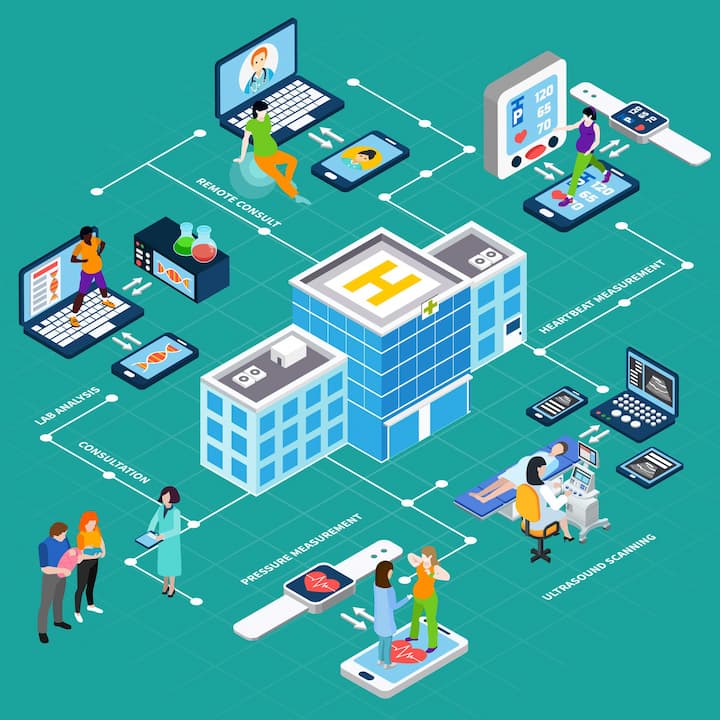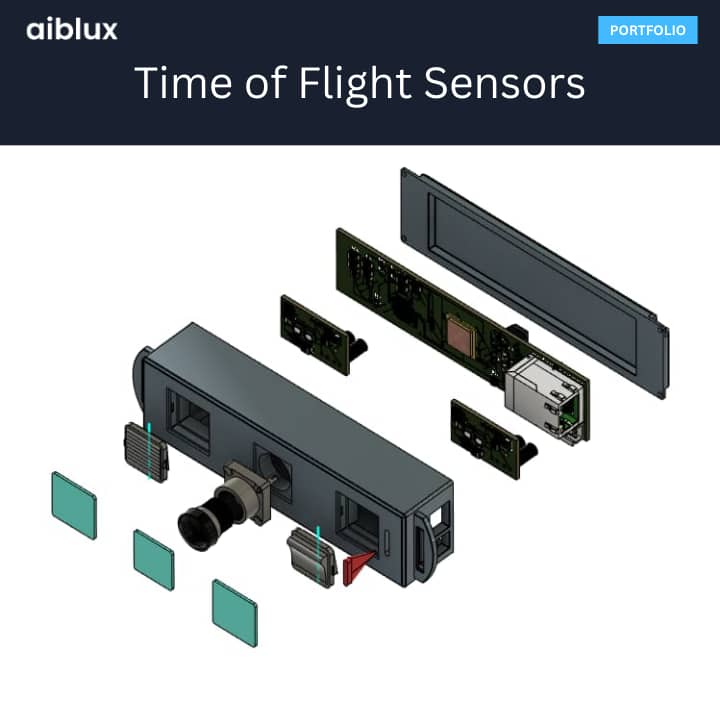Hospital Management Information System: Better Patient Care

Overview
The Hospital Management Information System (HMIS) is an integrated software solution designed to manage the comprehensive information needs of hospitals. The system is built to streamline administrative workflows, improve patient care, and ensure seamless communication across all hospital departments.
HMIS encompasses various modules that handle patient information, appointment scheduling, medical records, billing, inventory, and reporting, providing a holistic approach to hospital management.
Key Features
- Patient Management: Comprehensive management of patient information, including registration, admission, discharge, and history tracking.
- Appointment Scheduling: Streamlined scheduling of appointments, including online booking, cancellations, and reminders.
- Medical Records Management: Secure digital storage, retrieval, and updating of patient medical records.
- Billing and Financial Management: Automated billing processes, payment handling, and insurance claims management.
- Staff Management: Efficient management of staff information, duty rosters, and payroll.
- Inventory and Supply Chain Management: Tracking and managing medical supplies and equipment.
- Reporting and Analytics: Generation of detailed reports on hospital operations, patient care, and financial performance.
- Security and Compliance: Implementation of robust security measures to protect data and ensure compliance with healthcare regulations.
- Increased Efficiency: Automated processes save time and reduce errors, enhancing overall productivity.
- Better Patient Experience: Convenient access to services and information improves patient satisfaction.
- Enhanced Data Management: Secure and organized data handling ensures data integrity and confidentiality.
- Cost Reduction: Automation reduces operational costs and increases resource utilization.
- Regulatory Compliance: Ensures compliance with healthcare regulations and standards, reducing the risk of legal issues.
HMIS Modules
The Hospital Management Information System (HMIS) is divided into clinical and non-clinical modules. Each module is designed to address specific aspects of hospital operations, ensuring comprehensive management of both patient care and administrative tasks.
1. Clinical Modules
Clinical modules are focused on patient care and medical services. These modules help in managing patient information, treatment, and healthcare delivery efficiently.
1.1 Patient Registration and Admission
- Handles patient registration, demographics, and admission details. Manages patient check-in and check-out processes.
1.2 Electronic Medical Records (EMR)
- Digital storage of patient medical histories, treatment plans, and progress notes.
- Secure access to patient records for authorized healthcare professionals.
1.3 Appointment Scheduling
- Allows patients to book, reschedule, and cancel appointments online.
- Provides real-time availability of doctors and specialists.
1.4 Laboratory Information System (LIS)
- Manages lab test requests, specimen tracking, and results reporting.
- Integrates with EMR for seamless access to test results.
1.5 Radiology Information System (RIS)
- Handles scheduling, tracking, and reporting of radiology exams.
- Integrates with imaging equipment and EMR for storing and viewing images.
1.6 Pharmacy Management
- Manages medication orders, inventory, and dispensing.
- Tracks prescription histories and potential drug interactions.
1.7 Inpatient Management
- Tracks patient status, bed occupancy, and nursing care.
- Manages treatment plans and clinical workflows for hospitalized patients.
1.8 Operating Room Management
- Schedules surgeries, tracks surgical procedures, and manages operating room resources.
- Documents pre-operative and post-operative care.
1.9 Nursing Management
- Assists in nursing workflows, patient monitoring, and care plans.
- Tracks vital signs, medication administration, and patient assessments.
1.10 Emergency Department Management
- Manages patient flow, triage, and treatment in the emergency department.
- Tracks critical cases and response times.
2. Non-Clinical Modules
Non-clinical modules focus on administrative, financial, and logistical aspects of hospital management. These modules help in running the hospital smoothly and efficiently.
2.1 Billing and Financial Management
- Handles billing processes, insurance claims, and payment collections.
- Generates financial reports and tracks revenue cycle management.
2.2 Human Resources Management (HRM)
- Manages employee records, recruitment, payroll, and performance evaluations.
- Tracks staff schedules, attendance, and leave management.
2.3 Inventory and Supply Chain Management
- Tracks medical supplies, equipment, and stock levels.
- Manages procurement, supplier relationships, and inventory audits.
2.4 Facility Management
- Manages maintenance schedules, housekeeping, and facility operations.
- Tracks equipment maintenance and infrastructure management.
2.5 Quality Management
- Monitors and evaluates healthcare quality and safety standards.
- Manages accreditation processes and compliance with regulatory requirements.
2.6 Reporting and Analytics
- Generates detailed reports on hospital performance, patient care, and financial health.
- Provides data analytics for informed decision-making and strategic planning.
2.7 Communication Systems
- Manages internal and external communication channels.
- Includes email, messaging, and alert systems for staff and patient notifications.
2.8 Patient Portal
- Provides patients with access to their medical records, appointments, and billing information.
- Facilitates communication between patients and healthcare providers.
2.9 Document Management
- Handles the creation, storage, and retrieval of hospital documents.
- Ensures secure and organized document management.
2.10 Security and Access Control
- Implements role-based access control for data security.
- Ensures compliance with data protection regulations and standards.
Technology Stack
- Frontend: HTML5, CSS3, JavaScript, and frameworks such as React.js or Angular.
- Backend: Node.js, Python (Django/Flask), or PHP (Laravel).
- Database: MySQL, PostgreSQL, or MongoDB.
- Hosting: Cloud services like AWS, Google Cloud, or Microsoft Azure.
- Security: SSL certificates, OAuth2, and advanced encryption protocols.
User Roles
- Administrators: Manage hospital operations, configure system settings, and oversee user accounts.
- Doctors: Access and update patient medical records, manage appointments, and coordinate care.
- Nurses: Assist with patient care, update patient information, and manage daily tasks.
- Receptionists: Handle patient registration, appointment scheduling, and billing.
- Patients: Book appointments, view medical records, and make payments online.
Implementation Plan
Our software development process encompasses following six phases:
- Phase 1: Requirement Analysis and Planning
- Gather requirements, identify key needs, and create a detailed project roadmap.
- Phase 2: Design and Prototyping
- Develop wireframes, mockups, and prototypes to gather user feedback and refine the design.
- Phase 3: Development
- Build the frontend and backend, integrate the database, and implement security measures.
- Phase 4: Testing
- Conduct thorough testing including unit tests, integration tests, and user acceptance tests.
- Phase 5: Deployment
- Deploy the system on a cloud server, ensuring all functionalities are operational and optimized.
- Phase 6: Training and Support
- Provide comprehensive training for hospital staff and offer ongoing technical support to ensure smooth operation.
Conclusion
The Hospital Management Information System (HMIS) aims to revolutionize hospital operations by leveraging advanced technology to streamline processes, enhance patient care, and improve overall efficiency. By implementing this system, hospitals can achieve higher standards of service delivery, better data management, and superior operational performance, ultimately leading to improved patient outcomes and satisfaction.


